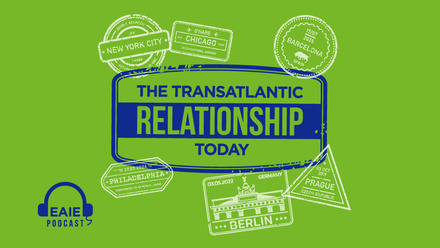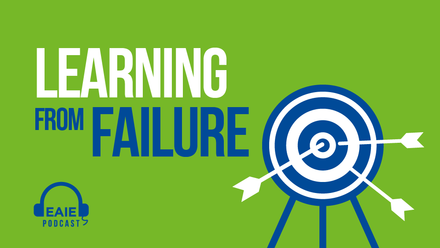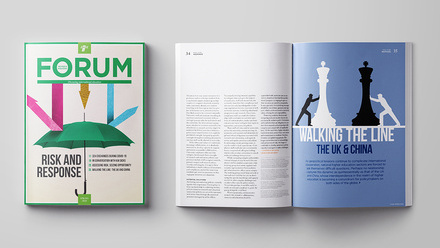Facilitating online international learning communities

Staff professionalisation in internationalisation is high on the strategic institutional agenda in many parts of the world. Often this means that workshops and expert talks are arranged, but also other formats such as learning networks and professional learning communities are explored. In the SABIO Erasmus+ project, Örebro University, Palacký University Olomouc, The Hague University of Applied Sciences, University of Ostrava, University of Hradec Králové, University of Jaen and University of Minnesota are piloting international online professional learning communities (PLCs) aimed at lecturers who want to become better international educators. In this blog we share our successes and struggles as facilitators of the Örebro-The Hague-Ostrava community.
Getting started
With the exception of The Hague, the concept of a PLC was not widely known, so how do you get lecturers to sign up for a learning experience they are not familiar with? With this question in mind, we decided to first create a buzz by organising three webinars on thought-provoking topics such as the hidden curriculum, inclusion and emerging pedagogies for diverse classrooms. Each webinar ended with an interactive part introducing the concept of a PLC and inviting the participants to add their thoughts on themes, outcomes and the formats of sessions. Next to this, we targeted programme managers, used our informal connections, and had lots of coffee machine conversations. At the start of October 2022 each partner had recruited 10–12 lecturers who were willing to embark on this year-long online international journey. In total, we hosted six online sessions; in addition, at each institution there were informal in-person sessions after the online session for reflection and input on future topics.
Our biggest fear: letting go
Our group of seven facilitators consisted of experts and newcomers to internationalisation, confident speakers of English and hesitant ones, technology-savvy minds and medium-literates. As we considered ourselves to be a professional learning community as well, we prepared and co-facilitated each session with another colleague from each institution so that we could learn from our diverse perspectives and different areas of expertise.
In a PLC everyone is a contributor and ownership is shared. This means letting go as a facilitator
As the sessions were online, we left nothing to chance and prepared meticulously. We felt the need to grab our community’s attention right from the start, inspire and keep their engagement for the full trajectory, and the onus was on us. However, in a PLC everyone is a contributor and ownership is shared. This means letting go as a facilitator, quite out of our comfort zone.
Ingredients of success
Letting go was hard, but quite soon it became clear that the main value for participants was engaging and discussing with peers from different contexts and disciplines. The discussion time in the breakout rooms increased steadily with each session; in our last session the breakout rooms were timed at 40 minutes and these still proved to be too short for the participants. Other positive outcomes were:
• Mixing disciplines internationally. Meeting peers in online discussions and designing the sessions around exchange of perspectives made colleagues more aware of their educational contexts at home, reflecting on their own cultural biases, educational values and teaching approaches but also exposing how academic disciplines vary in their thinking. For some it was the first time they had ever reflected on their own teaching practice. For example, colleagues from Ostrava became more aware of the importance of the social aspects to teaching.
• No experts. The fact that our learning community centred around peer-learning without anyone taking the role of expert or trainer created an equitable and safe environment. Although colleagues did not know each other or had never met in person, they were comfortable sharing their doubts, articulating concerns about new developments and even presenting their failed practices to each other.
• Link the international and the local. Combining online sessions with in-person institutional meet-ups turned out to be beneficial in multiple ways. It allowed for local sensemaking and bringing the international learning home to the context of the institution. Besides, it gave colleagues the opportunity to talk about the topics in their own native language and find words for concepts that may not be easily translated. These in-person meet-ups were inspired by the Swedish concept of fika, a social time for friends and/or colleagues to sit down, get a cup of coffee and perhaps some food for the mind.
• Address form and content. Besides addressing specific content on internationalising teaching, we were amazed at the amount of unintended but relevant learning taking place. The sessions turned out not just to be a discussion and reflection platform related to specific themes, but the interactive formats used during the sessions became the focus of learning as well with participants noting down the instructions to the activities and requesting access to the materials.
Useful reminders
Along the way we learned a lot as facilitators. Overcoming our discomfort with letting go was the main challenge, but the entire process provided many valuable lessons to take onboard with us. Here is our top three:
1. Just as with our students, we need to be mindful of the fact that language issues play a role; using multimodal input and including thinking time will help the interaction.
2. The fact that the learning community was facilitated online means that it takes longer for participants to take ownership. It was not until the last two sessions where we felt that colleagues were more proactive and in charge of the discussions, formulating their own discussion questions and sustaining the flow of conversation.
3. Time investment is an issue and especially toward the end of the academic year, colleagues are much pressed for time and attendance was dwindling. The highest continuous engagement came from Örebro, which had managed to provide paid hours to the lecturers. Such formal recognition by an institution acts as a great incentive for staff to take their professional development seriously.
"Energy for the soul"
This is how one of our The Hague participants described his participation in the learning community. Together with the other participants, he has become our ambassador in growing our community. Appreciating the value of learning in online international and multidisciplinary PLCs is a first step towards seeking formal recognition of this type of professional development that we believe may prove to be more impactful and lasting.






